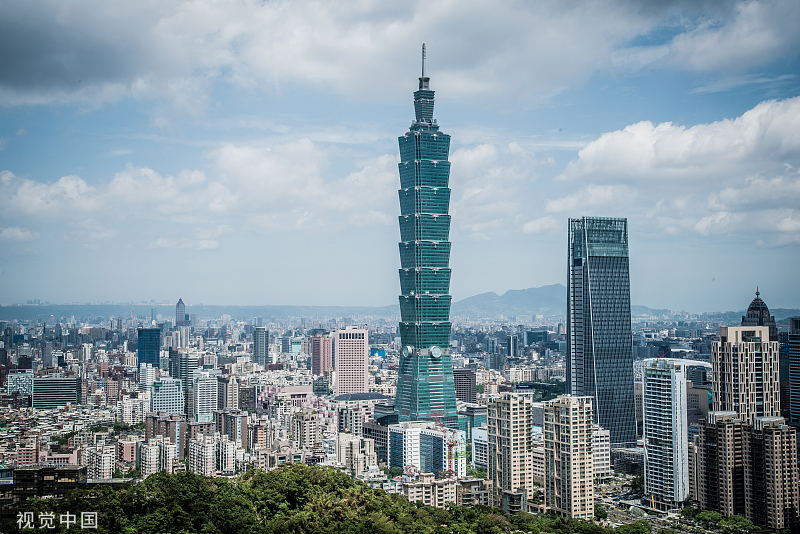US' aggressive playing of the 'Taiwan card': China Daily editorial


It seems that Taiwan has become a catwalk on which various US politicians want to strut to put themselves in the spotlight, no matter how much their preening and posturing ratchets up tensions in the region.
Arizona Governor Doug Ducey, who arrived in Taiwan on Tuesday, is the latest in the string of US politicians who have flocked to the Chinese island hard on the heels of US House Speaker Nancy Pelosi's visit at the beginning of August.
Taiwan Semiconductor Manufacturing Company has constructed a new manufacturing plant in Arizona and as well as meeting with Tsai Ing-wen, the head of the island's authorities, Ducey is visiting companies in the semiconductor industry during his three-day trip.
Semiconductors have become a focal point of the US' technology offensive against China, and Ducey's visit is clearly in line with the Joe Biden administration's bid to forge a coalition among the major chip enterprises with the aim of excluding China from the global supply chain.
As part of this endeavor, Biden has just signed into law the CHIPS and Science Act, with the aim of giving a huge shot in the arm to US semiconductor research, development and manufacturing.
Due to TSMC's importance in the global semiconductor supply chain, the US has made a series of moves to disrupt the chip giant's cooperation with the Chinese mainland and force it to join its so-called Chip 4 Alliance that aims to block the development of the Chinese mainland's chip industry.
By repeatedly playing the "Taiwan card" and sending its politicians to visit Taiwan to collude with pro-independence forces on the island, the US is cavalierly raising tensions.
The increased provocations by the US on the Taiwan question are fueling concerns that a clash between the US and China is becoming inevitable.
In a white paper on the Taiwan question released earlier this month, Beijing made it clear that although it pursues peaceful reunification, it will not hesitate to use force if it is compelled to do so.
And the unprecedented military exercises conducted around the island by the People's Liberation Army in response to Pelosi's Taiwan visit has sent an unmistakable message to the outside world that it has the capability to do so.
No matter how many US politicians visit Taiwan, and how many military exercises the US stages in the region with its allies — the White House says one is planned in the near future to supposedly guide the situation in the Western Pacific toward greater stability — they will not change the island's status, since it is an unalterable fact that Taiwan is an inalienable part of China, of which the government in Beijing is the sole legal representative.
Washington endeavors to talk a good game. It relentlessly accuses China of being aggressive and bullying smaller countries. In doing so, it tries to obscure the unalterable truth that Taiwan is not a country.
It is the US that is behaving aggressively and lawlessly. Heedless of the consequences, it is trying to use the Taiwan question to peremptorily assert its own alpha status.


































